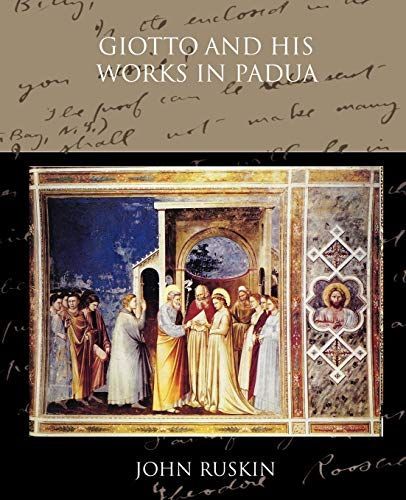
Giotto and His Works in Padua
John Ruskin was born in England in 1819. He was a critic of art, architecture and society. He was a Victorian sage and gifted painter. He goal with his writings was to cause widespread cultural and social change. This combination of the religious intensity of the Evangelical Revival and the artistic excitement of English Romantic painting laid the foundations of Ruskin's later views. The Encyclopedia Britannica sums up Ruskin as follows. "Ruskin has gradually been rediscovered. His formative importance as a thinker about ecology, about the conservation of buildings and environments, about Romantic painting, about art education, and about the human cost of the mechanization of work became steadily more obvious. The outstanding quality of his own drawings and watercolors (modestly treated in his lifetime as working notes or amateur sketches) was increasingly acknowledged, as was his role as a stimulus to the flowering of British painting, architecture, and decorative art in the second half of the 19th century." Giotto was a 13th century Italian painter and architect. . He is generally considered the first of the great artists who contributed to the Italian Renaissance. Giotto's masterwork is the decoration of the Scrovegni Chapel commonly called the Arena Chapel, completed around 1305. His frescos depict the life of the Virgin and the life of Christ. They are some of the greatest artistic works of the Renaissance.